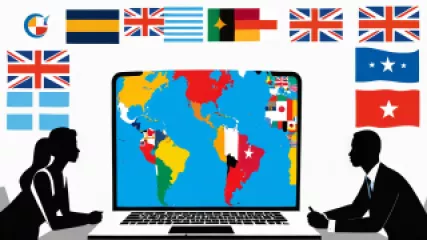Building Diversity-Focused Mental Health Support through Cultural Competence
In the world of mental health, cultural competence is not just a desirable quality - it is essential. As our society grows more diverse, mental health professionals must be able to provide services that respect and respond to the cultural and linguistic needs of their clients. This is especially true in online coaching, where multicultural coaching sessions can span continents and cultures. This guide will provide you with a step-by-step approach to building diversity-focused mental health support through cultural competence.
Understanding Cultural Competence
Cultural competence refers to an ability to interact effectively with people of different cultures. In the context of mental health services, it means understanding the client's cultural framework and integrating it into all aspects of service delivery.
- Learn about different cultures: This involves researching and understanding various cultural practices, beliefs, and values. This is a continuous process as cultures are dynamic and constantly evolving.
- Self-awareness: Mental health professionals should be aware of their own cultural biases and how they may impact their work.
- Respectful communication: All communication should be respectful and sensitive to cultural nuances. This includes verbal and non-verbal communication.
Step 1: Developing Cultural Awareness
The first step in developing cultural competency in online coaching is to enhance your own cultural awareness. It is important to recognize that everyone has a cultural lens through which they view the world, including yourself. Reflecting on your own cultural identity and biases can help you understand how they might influence your interactions with clients from different cultural backgrounds.
Exercise Self-Reflection
Reflect on your own cultural background and consider how it might influence your values, behaviors, and biases. Ask yourself questions such as:
- What aspects of my culture am I most aware of?
- How does my cultural background influence the way I understand mental health?
- What assumptions might I make about individuals from different cultural backgrounds?
Step 2: Cultivating Cultural Knowledge
The next step is to actively seek out knowledge about the cultures of your clients. This could involve researching cultural traditions, norms, and values, as well as understanding the societal issues that may impact mental health within these communities. This knowledge will help shape your approach and tactics during multicultural coaching sessions.
Continuing Education
Consider enrolling in cultural competency training courses or workshops. These can provide in-depth insights into different cultures and practical strategies for providing culturally competent care. Reading books and articles, attending cultural events, and engaging in conversations with individuals from diverse backgrounds can also be valuable learning opportunities.
Step 3: Applying Cultural Competence in Practice
Once you have developed a solid foundation of cultural awareness and knowledge, the next step is to apply this understanding in your coaching practice. This involves integrating cultural considerations into every aspect of your work, from assessment to intervention.
Adapting Your Approach
Adapt your therapeutic approach to account for cultural differences. For example, some cultures may value collectivism over individualism, which could influence how you structure your sessions or what interventions you use. Be flexible and willing to adjust your methods based on your client's cultural background.
Communicating Effectively
Effective communication is key to cultural competency in online coaching. This means not only speaking respectfully and clearly but also listening actively and empathetically. It may also involve using a translator or interpreter if there is a language barrier.
Step 4: Continual Growth and Learning
Cultural competence is not a destination, but a journey. Cultures are continually evolving, and so too should your understanding and approach. Commit to ongoing learning and growth in this area.
Seeking Feedback
Regularly seek feedback from your clients about how well you are meeting their cultural needs. This can provide invaluable insights into areas where you might need to improve. Also, consider seeking supervision or consultation from colleagues who have expertise in cultural competence.
Embracing Change
As cultures evolve, so should your approach. Be open to changing your practices based on new knowledge or feedback from your clients.
Conclusion
The integration of cultural competency in online coaching is an essential part of providing effective, diversity-focused mental health support. By developing your cultural awareness, cultivating cultural knowledge, applying cultural competence in practice, and committing to continual learning, you can ensure that your services meet the unique needs of each client, regardless of their cultural background. Remember, cultural competence is not a destination, but a journey, and every step you take towards it improves the quality of care you provide.






